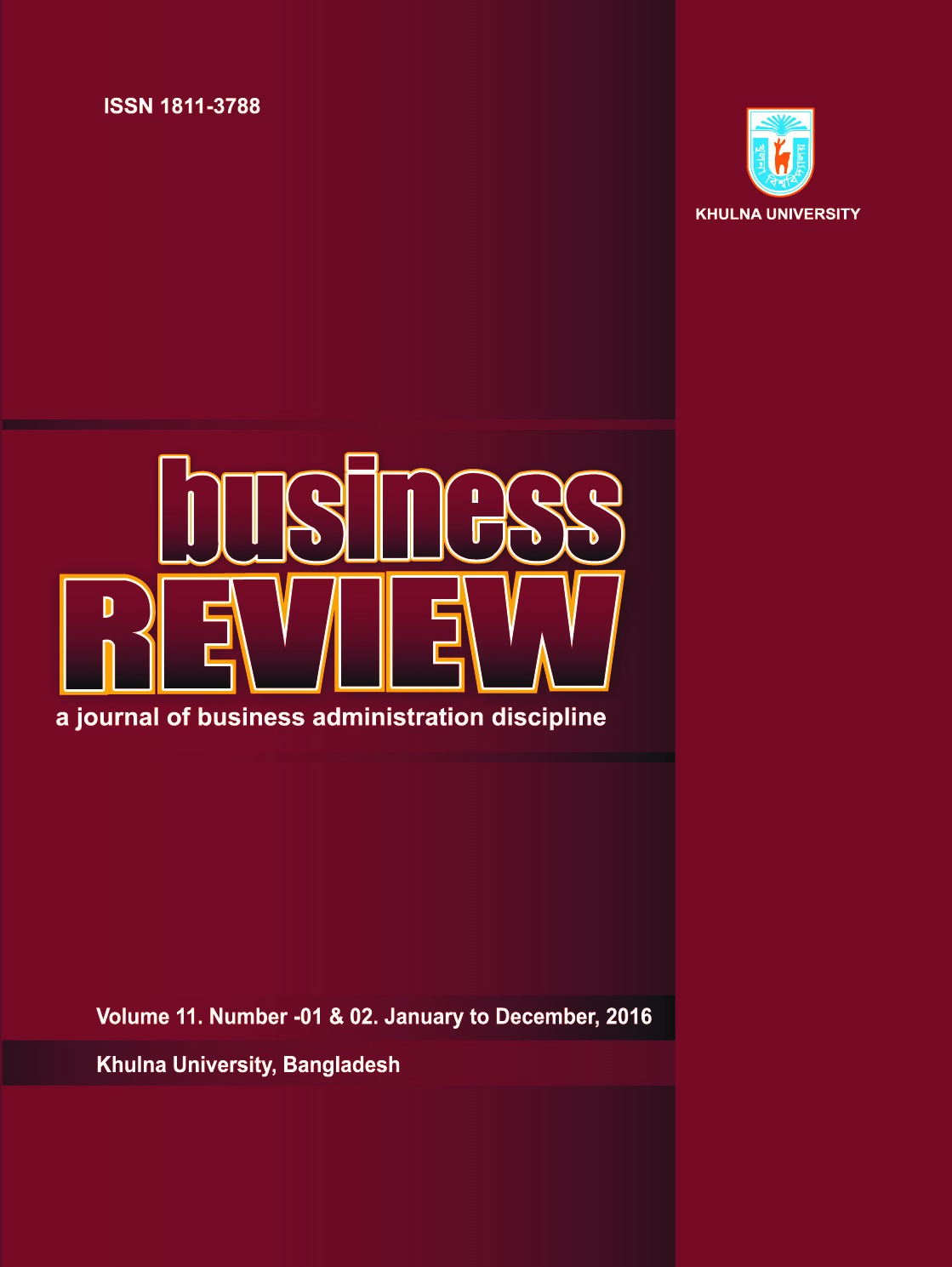Key Antecedents Influencing Intermediary Social Responsibility and Its Outcomes: Insights from a Transitional Economy
Md. Farijul Islam
Md. Mourtuza Ahamed
Khulna University Business Review – A Journal of Business Administration Discipline, Khulna University, BD
Volume 11, Number 1 & 2, January to December 2016, Pages 20-34
DOI: 10.35649/KUBR.2016.11.12.10
Published: May 2018
Published Online: July 2019
Abstract
Purpose: The purpose of this study was to investigate and determine the key antecedents of intermediary social responsibility (ISR) and its outcomes.
Design: The conceptual framework was designed through exploratory research design where structural relationships were shown with partial least squares structural equation modeling (PLS-SEM) with smart PLS 3.
Findings: The result showed that intermediary self -interest is the strongest predictor of intermediary social responsibility along with consumer ethical aspect has moderate impact but societal and environmental factors do not predict of intermediary social responsibility.
Research Limitation/Implication: The theoretical contribution of the study is to minimize the knowledge gap by widening the length of existing literature related to the aspect of consumer research. Intermediary social responsibility would help to build up nexus between corporate social responsibility (CSR) and consumer social responsibility (CNSR) which brings positive socio-economic development of the transitional economy.
Originality: The novelty of this research is that it is the unexplored area of consumer research and is not commonly seen and researched by past researchers in the transitional country context.

Keywords